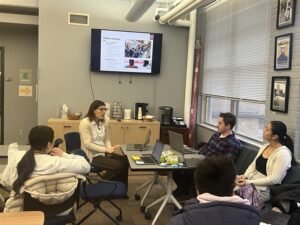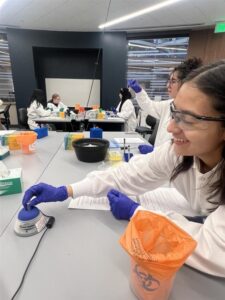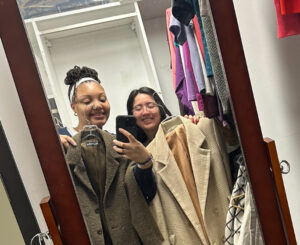Twenty first-generation students at UW–Madison are on the brink of a transformative experience. These undergraduate scholars from the Division of Diversity, Equity & Educational Achievement (DDEEA) will attend the National Conference on Undergraduate Research from April 8 through 11, 2024. The National Conference on Undergraduate Research (NCUR) promotes undergraduate research, scholarship, and creative activity in all fields of study by sponsoring an annual conference for students.

The odyssey began humbly with biweekly workshops held in the Center for Educational Opportunity (CeO) offices at Ingraham Hall. These sessions equip scholars with everything they need for academic success and for pursuing their respective research fields. Students receive guidance on various topics, from submitting abstracts to securing funding to fulfill the once-in-a-lifetime opportunity of attending a prestigious academic conference.
Many first-generation students face numerous barriers to attending conferences like NCUR that help spur academic and career success for young researchers. These barriers range from daunting costs to a lack of guidance and mentorship. Enshrined in the DDEEA’s mission and work is to minimize, if not eliminate, the obstacles that prevent brilliant young minds from reaching their full potential.

For first-generation students, college acceptance does not equate to a college credential or degree. Nationwide, only 27.4% of first-generation students graduate within four years. With a 90.3% one-year retention rate, CeO outperforms the national average. CeO also has a 59.5% of four-year graduation rate and an 87% six-year graduation rate.
The success metrics are a testament to the resilience, aspirations, and motivations of these young scholars — bright minds driven by an unyielding determination to succeed regardless of their representation in traditional academic circles. Many of these students are successful scholars, with research published during their high school years at charter schools or STEM magnet programs. They stood out by being among the small 13.33% of students accepted to UW–Madison from thousands of applicants.
The DDEEA and its programs, like CeO, tirelessly advocate on behalf of first-generation and many other underrepresented students, supporting these young scholars to meet their full potential. CeO’s advisors work collaboratively to provide mentorship and create a supportive community for their students.

For scholars attending NCUR, this means working with mentors and advisors to establish robust accountability partnerships, regular group meetings, group texting, and peer leadership to support each other in writing winning abstracts and presentations. Students worked closely with researchers, principal investigators (PIs), teaching assistants (TAs), and other professionals to prepare for NCUR. Other campus partners supported CeO and the DDEEA to prepare students. Design Lab provided digital design tutoring, while SuccessWorks will be helping them dress for success with Career Closet.
The twenty scholars attending NCUR are Mushtaq Ali, Stefanny Anguiano, Alriana Buller-Jarrett, Zainab Camara, Jasmine Cheng, Holy Din, Dominique Gooden,Tina Li, Scarlett Liu, Nasya Miller, Faye Nichols, Amalia Petropoulos, Kevin Teye-Yalley, Perla Larios Ramos, Ayesha Rizvi, Mia Villaron, Julia Xiong, Mai Nhia Yang, Fernando Zacahua, and Stephanie Zumba. These students will not only present their research but also pave the path for generations of first-generation students after them.
The DDEEA and CeO mentors who have supported these students on their journey are Dr. Cheri Barta, Dr. Catherine Chan, Ryan Grady, Sarina Strnad, and Hyewon Park.
This blog post is the first in our series, “The Journey for Greater Things.” We will be following up with student reflections and their experiences at NCUR. Hopefully, over time, we can share more stories documenting the power of education to transform lives and build a movement toward a more inclusive, equitable future and equal opportunities for all students.